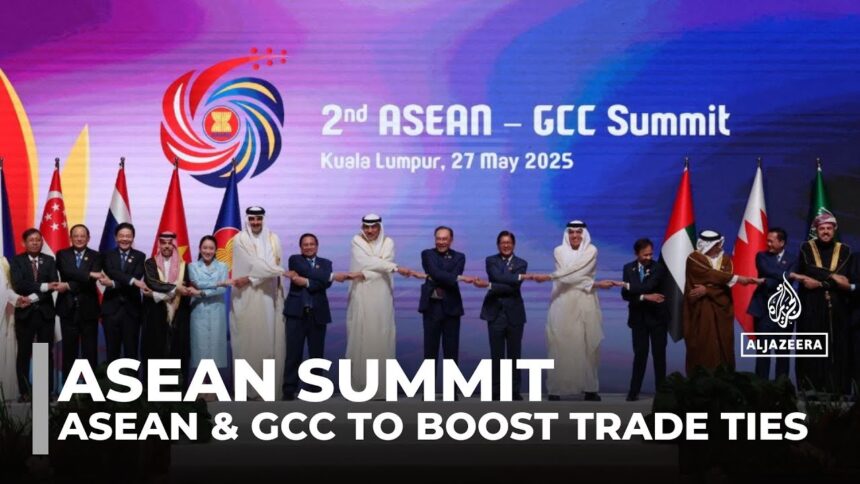GCC, China, ASEAN countries pledged to promote trade and work to ‘unleash the full potential of our partnership’.
The Gulf Cooperation Council (GCC), China and the 10-member Association of Southeast Asian Nations (ASEAN) agreed to “chart a unified and collective path towards a peaceful, prosperous, and just future”, following their meeting in the Malaysian capital, Kuala Lumpur.
In a world roiled by United States President Donald Trump’s threats of crippling tariffs and rising economic uncertainties, alternative centres of global power were on full display, with the GCC and China attending the ASEAN summit for the group’s inaugural trilateral meeting on Tuesday.
In their joint statement released on Wednesday, the GCC – comprising Bahrain, Kuwait, Oman, Qatar, Saudi Arabia and the United Arab Emirates – China, and ASEAN members Indonesia, Singapore, Malaysia, Thailand, Vietnam, Philippines, Brunei, Cambodia, Laos and Myanmar said they were committed to enhancing economic cooperation.
Chief among that cooperation will be the promotion of free trade, the signatories said, adding they looked “forward to the early completion of the GCC-China Free Trade Agreement negotiations” and the upgrading of the ASEAN-China free trade area.
“We reaffirm our collective resolve to work hand in hand to unleash the full potential of our partnership, and ensure that our cooperation translates into tangible benefits for our peoples and societies,” they said.
Malaysia’s Prime Minister Anwar Ibrahim – whose country is currently chair of ASEAN and hosted the summits – told a news conference that the US remains an important market while also noting that ASEAN, the GCC, and China collectively represent a combined gross domestic product (GDP) of $24.87 trillion with a total population of about 2.15 billion.
“This collective scale offers vast opportunities to synergise our markets, deepen innovation, and promote cross-regional investment,” Anwar said.
The prime minister went on to dismiss suggestions that the ASEAN bloc of nations was leaning excessively towards China, stressing that the regional grouping remained committed to maintaining balanced engagement with all major powers, including the US.
James Chin, professor of Asian studies at the University of Tasmania in Australia, told Al Jazeera that the tripartite meeting was particularly important for China, which is being “given a platform where the US is not around”.












